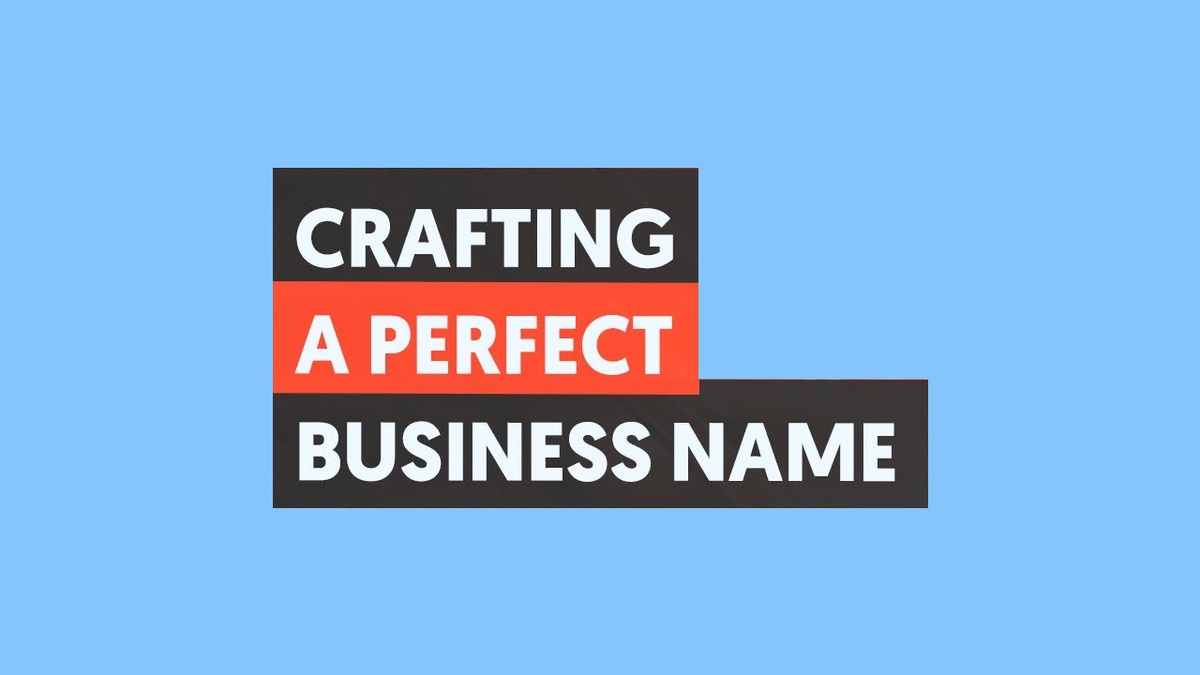There are estimated 30 million companies in the world today. That's roughly one company for every 26 people. With so many brands in the world, ranging from huge brands like Coca-Cola and Apple, to small brands like Mom-and-Pop shops. It's becoming harder and harder to stand out. So how can you create a brand name that can help position your company in this increasing more competitive scenario and stand out from a huge crowd?
There's so many businesses nowadays, it can be hard to find a good business name. Over 627000 businesses open each year, according to the Small Business Administration. That is 627000 fewer names to choose from every year. Well, if you're worried, don't worry, I'm here to help, so don't worry.
First off, let's start off by going over what makes a good brand name. There was a study done by the University of Alberta in 2010, that concluded that customer responded very well to repeatedly structured brand names such as Coca-Cola, Kit Kat, Jelly Belly. Repetitive brand names affect consumers' branding elevations, reactions to cross selling and product choices.
A good brand name can be any number of things.
- Meaningful, right? That cultivates a positive emotion and connection.
- Visual, brand name that's communicated through design or logo.
- Distinctive, stands out from your competitors.
- And Accessible, easy to interpret.
These are just a few ways in which a brand can provide value. However, the most important question that you need to ask yourself is, especially when you're creating a brand, does it resonate with your audience?
The first thing is, consider the audience you're targeting. If you're targeting a hedge fund investors, do you think a name like Jelly Belly or Coca-Cola would work? Especially for creating some hedge fund type of product? Of course not. So the first thing you want to do is consider the audience that your brand is targeting. What is their age group? What is their cultural values? What is the brand? And how will it help them accomplish things in their lives? Solve their needs, their wants and their desires.
If you have a poor understanding of the audience you're targeting, the next steps will fail. So it's important that you really put your audience in the center of everything.
The second thing you need to do, is select what type of name you want. Some people can successfully get away with using their name as their business. These are typically embodied in their vision of the founders. Example of this is the Michael Jordan Brand himself, right? The Jordan shoes. He's using his last name. It's almost billion dollar brand, if not over a billion. Elon Musk, he uses Tesla named after Nikola Tesla.
The next one is acronyms. These are shortened versions of descriptive names. Kentucky Fried Chicken label themselves as KFC because they thought fried chicken sounded unhealthy and it's name.
Did you know Geico is actually not named Geico at first standard for government employees insurance companies. Later on they decided to rebrand as Geico, and then they put that famous Gecko as part of it, and that put a fun spin on it.
The third one is descriptive. The name of your company can legitimately describe what your business is. American Airlines, Home Depot. These are examples of names that tell people exactly what the company does. This avoids any confusion. It can be boring at sometimes, but it works well.
The fourth one, suggested names and there are three types.
Real, these are terms that are taken straight from the dictionary, right? EX Uber, means outstanding or supreme example of a particular kind of person or thing. That represents a company with big goals and ambitions.
Composite, mixing to dictionary words together into one. Facebook is a prime example of this. The third one is invented. Sometimes they're just not enough words in a dictionary to come up with your own brand, so you have to invent one. A good example of this is Pinterest. Yeah, sure there're words like pin and interest, but they just merge them and created their own word and it worked well for them.
The fifth one is associative. A reflective meeting back to the brand, a name that has a metaphorical meaning, such as Sirius XM, right? The satellite company radio station named their brand after Sirius, the brightest star in the sky. It's a station where you can come and listen to the biggest and brightest stars.
The fifth one is names that derive from another language, right? See, sometimes a la--, name won't make sense in your language but it will make sense in others. Good example of this is Hulu. It's actually derived from a Chinese term that is used to represent a bowl that stores precious things.
The next one abstract name. This is where the power of phonetics comes into play. A good example of this is Rolex. Rolls right off the tongue and also represents a luxurious connotation. Now pro-tip for you, make sure it's a name that can be trademarked or copyrighted. For example, the NBU Universal channel, right? Sci-fi had to change his name to S-Y-F-Y. Not only did it visually look more appealing, but they can now copyright it.
The third thing, you want to decide what your name should say. Ask yourself, what is your brand vision? What is your company's mission statement? The best brand names don't describe, instead they translate into some sort of emotional appeal. You want your brand to articulate your brand heart. Nike's emotional appeal is about winning, overcoming adversity, being a champion. When you think Nike, you think professional athletes, Olympians, champions, right? Just do it.
Coca-Cola gives you this sense of nostalgia, happiness, spending time with family and friends. You need to figure out what your big idea is and how you can translate that into your brand name. You can even try testing with different brand names to see where you find the most success. Try running targeted ad campaigns, to landing pages and even conduct surveys with friends and other focus groups.
The fourth thing, trim down the complexity. The stickiest brand names out there are simple. If you have a brand name that's hard to pronounce are too long, or it's not easy to memorize, well, it's going to have a negative effect.
Did you know when Jeff Bezos was incorporating Amazon, he wanted to name his business to be Cadabra, right? After the magic word Abracadabra.
But when he got a call from his lawyer who was helping him incorporate, his lawyer thought the name of the company was Cadaver. He didn't know it was Cadabra. Right then Basos knew, and he realized that, that name wouldn't work, hence you see the name now of Amazon. Luckily we're not all going to Cadaver or Cadabra. Amazon is much an easier to understand name.
Last but certainly not least, make sure your name isn't already taken. There's a ton of ways you can do this. Make sure you do trademark searches. Each country has their own trademark engines, do searches, make sure there's nothing that pops up so that way you can take that name. And of course, make sure that your name doesn't mean anything negative in other languages. As long as you do that, you'll be off to the races and you'll have an amazing brand name.


No comments yet